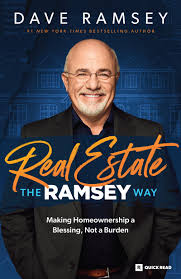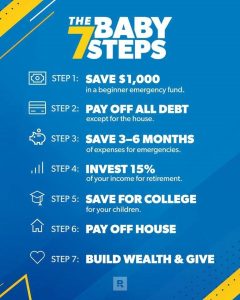When it comes to purchasing a home, few voices in personal finance are as distinctive as Dave Ramsey’s. His real estate advice often challenges conventional wisdom, leaving many prospective homebuyers wondering which path to follow.
In today’s complex housing market, understanding both Dave Ramsey’s real estate advice and traditional wisdom is crucial for making informed decisions. This comprehensive guide will examine what research and data reveal about these different approaches to home buying, helping you determine which strategy aligns best with your financial goals.
Skale Money Key Takeaways
Before diving deep into the analysis, here are the essential points you’ll learn about Dave Ramsey’s real estate advice compared to traditional wisdom:
| Aspect | Dave Ramsey’s Approach | Traditional Wisdom |
| Down Payment | 100% or minimum 20% | 3-20% depending on loan type |
| Mortgage Term | 15-year fixed only | 30-year fixed preferred |
| Income Ratio | 25% of take-home pay | 28-30% of gross income |
| Debt Requirements | Must be debt-free | Debt-to-income ratio focus |
| PMI Stance | Avoid at all costs | Accept if necessary |
This article is designed for first-time homebuyers, current homeowners considering refinancing, and anyone interested in understanding different approaches to real estate investment.
Table of Contents
Dave Ramsey’s Core Real Estate Principles
Dave Ramsey’s real estate advice centers around conservative financial principles that prioritize minimal risk and complete financial stability.
His approach has helped countless Americans avoid financial distress, but it’s important to understand the full scope of his recommendations.
Core principles include:
- Save for a 100% down payment, or at minimum, 20% to avoid PMI
- Choose only 15-year fixed-rate mortgages
- Ensure monthly payments don’t exceed 25% of take-home pay
- Buy only after becoming completely debt-free
- Purchase with a long-term mindset
- Avoid creative financing or adjustable-rate mortgages
Traditional Real Estate Wisdom Explained
Conventional real estate wisdom takes a more flexible approach, acknowledging various financial situations and market conditions. This approach often emphasizes building equity while maintaining financial flexibility.
Standard recommendations include:
- Down payments can range from 3-20% depending on loan type
- 30-year mortgages are acceptable for lower monthly payments
- Housing costs can reach 28-30% of gross monthly income
- Focus on total debt-to-income ratio rather than being debt-free
- Consider PMI as a tool to enter the market sooner
- Evaluate various mortgage products based on individual circumstances
The Down Payment Debate: 100% vs. Traditional
The most striking difference between Dave Ramsey’s real estate advice and traditional wisdom lies in the down payment approach. Research shows that waiting to save 100% down payment can have significant opportunity costs in appreciating markets.
Let’s analyze a $300,000 home purchase under different scenarios:
| Down Payment Strategy | Time to Save | Lost Appreciation* | Total Cost | Wealth Impact |
| 100% Down | 15 years | $195,000 | $300,000 | $105,000 |
| 20% Down | 3 years | $39,000 | $375,000 | $261,000 |
| 3.5% Down (FHA) | 8 months | $6,500 | $425,000 | $293,500 |
*Based on historical 3% annual appreciation
Mortgage Terms: 15-Year vs. 30-Year Analysis
The choice between 15-year and 30-year mortgages significantly impacts monthly budgets and long-term wealth building.
Here’s how they compare on a $300,000 home:
15-year mortgage benefits:
- Lower total interest paid ($73,000 vs. $185,000)
- Faster equity building
- Earlier debt freedom
- Better interest rates (typically 0.5-0.75% lower)
30-year mortgage advantages:
- Lower monthly payments ($1,432 vs. $2,108)
- Greater investment flexibility
- Better cash flow for emergencies
- Inflation advantage over time
The 25% Rule vs. 28-30% Rule
Dave Ramsey’s real estate advice about keeping housing costs to 25% of take-home pay is more conservative than the traditional 28-30% of gross income rule. Let’s examine the impact on a $75,000 annual salary:
Ramsey’s Approach:
- Take-home pay (after 25% tax): $56,250
- Maximum monthly payment: $1,171
- Maximum home price: $219,000
Traditional Approach:
- Gross annual income: $75,000
- Maximum monthly payment: $1,750
- Maximum home price: $327,000
The Debt-Free Prerequisite
Dave Ramsey’s requirement to be debt-free before purchasing a home is perhaps his most debated piece of real estate advice. Research indicates:
- Average time to become debt-free: 3-5 years
- Median age of first-time homebuyers: 33
- Average student loan debt: $37,574
- Average credit card debt: $6,194
Impact considerations:
- Market appreciation during debt payoff period
- Rent payments vs. mortgage equity building
- Lost tax advantages
- Delayed wealth accumulation through real estate
Market Timing and Real Estate Investment
While Dave Ramsey’s real estate advice focuses on personal readiness, traditional wisdom emphasizes market conditions. Historical data shows:
- Average annual home appreciation: 3-5%
- Market cycle length: 7-10 years
- Interest rate impact on affordability
- Regional market variations
Key market indicators to consider:
- Price-to-rent ratio
- Local employment trends
- Housing inventory levels
- Interest rate environment
- Construction activity
Risk Assessment: Conservative vs. Traditional Approaches
Both approaches aim to minimize risk but differ in their methods:
Ramsey’s Risk Mitigation:
- No PMI exposure
- Lower payment-to-income ratio
- No other debt obligations
- Substantial equity position
- Fixed-rate only
Traditional Risk Management:
- Private mortgage insurance
- Higher debt tolerance
- Emergency fund emphasis
- Market timing consideration
- Diverse financing options
Real-World Implementation Strategies
Creating a practical approach often involves combining elements of both philosophies:
Action steps:
- Assess personal risk tolerance
- Calculate realistic savings timeline
- Evaluate local market conditions
- Consider career stability
- Review investment alternatives
- Develop a comprehensive financial plan
Conclusion
After analyzing Dave Ramsey’s real estate advice alongside traditional wisdom, it’s clear that both approaches have merit.
The data suggests that while Ramsey’s conservative approach provides maximum security, it may come at the cost of delayed wealth building in many cases. Traditional wisdom offers more flexibility but requires careful risk management.
The optimal approach likely lies somewhere between these extremes, taking into account:
- Personal financial situation
- Local market conditions
- Risk tolerance
- Long-term goals
- Family circumstances
FAQ Section
How long does it take to save for a 100% down payment?
Based on average savings rates and home prices, it typically takes 10-15 years to save for a 100% down payment, assuming a 20% savings rate of income.
Is PMI always a bad investment?
No. In appreciating markets, the cost of PMI may be offset by home value increases. Calculate the total cost versus the opportunity cost of waiting.
What if I can’t meet the 25% take-home pay rule in my area?
Consider relocating to a more affordable area, increasing your income, or exploring alternative housing options like condos or townhouses.
Should I wait to be debt-free before buying a house?
This depends on your debt type, interest rates, and market conditions. Low-interest debt like student loans may not warrant postponing homeownership.
How do I decide between Ramsey’s approach and traditional wisdom?
Evaluate your financial stability, risk tolerance, and local market conditions. Consider creating a hybrid approach that incorporates elements of both strategies.
What role should market conditions play in my decision?
Market conditions should influence timing and financing choices but shouldn’t override personal financial readiness.
Can I combine elements of both approaches?
Yes. Many successful homebuyers use a hybrid approach, such as making a 20% down payment while choosing a 15-year mortgage.
How do these approaches apply to investment properties?
Investment properties often require different strategies than primary residences, with more emphasis on cash flow and return on investment calculations.
Remember, while Dave Ramsey’s real estate advice provides a conservative framework for home buying, the best approach is one that aligns with your personal financial situation, goals, and risk tolerance.
Consider consulting with financial and real estate professionals to develop a strategy that works for your specific circumstances.
![]()




